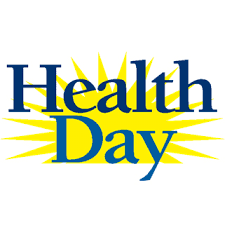 Safety/Quality
Safety/Quality
Survey: Tariffs expected to increase hospital costs, disrupt supply chains

Editor's Note Rising tariff-related costs are expected to significantly impact hospital budgets and healthcare supply chains, according to a March 27 report in Becker’s Hospital Review. The article focuses on a recent survey conducted by Black Book Market Research in January before the US enacted 25% tariffs on Canadian and…
Study: Arthroplasty implants linked to metal accumulation in cerebrospinal fluid

Editor's Note Arthroplasty implants may release metals that accumulate in the central nervous system (CNS), potentially contributing to neurotoxic effects, according to a study published March 28 in JAMA Network Open. Researchers found that patients with large joint replacements had significantly higher levels of cobalt, chromium, titanium, niobium, and zirconium…
Study: Preop mental health assessment improves postop outcomes for older patients

Editor's Note Preoperative mental health assessment significantly increases the odds of a postoperative “textbook outcome” for older patients, according to research published on March 15 in the journal Surgery. The median age for the patient population analyzed at the time of surgery was 74 years. Focusing on more than 32,500…
Study: Adenotonsillectomy reduces healthcare use in children with mild sleep-disordered breathing

Editor's Note Surgical removal of enlarged tonsils and adenoids significantly decreases medical visits and prescription use in children with mild sleep-disordered breathing (SDB), according to a March 17 study in JAMA Pediatrics. Supported by the National Institutes of Health (NIH), the study found that adenotonsillectomy led to a 32% reduction…
Introducing New Leader Toolkit: Your guide to OR leadership success

Editor's Note Stepping into a leadership role in the OR is both exciting and demanding. From budgeting and performance metrics to staffing and scheduling, there is a lot to navigate right from day one. To help new leaders step into their roles with confidence—and to offer fresh insights for seasoned…
Northwestern tests autonomous blood draw robot

Editor's Note Northwestern Medicine has partnered with robotic technology firm Vitestro to test and validate the safety and effectiveness of autonomous blood draw technology, according to a March 20 announcement from the health system. The multi-year collaboration centers on Aletta, billed as the world’s first Autonomous Robotic Phlebotomy Device (ARPD),…
Unplanned hospital admissions post ASC visits remain exceptionally low, study finds

Editor's Note A large-scale study of over 50,000 ambulatory surgery center (ASC) procedures shows a strikingly low rate of 24-hour unplanned postoperative hospital admissions, offering a benchmark that other ASCs can strive to match, General Surgery News March 26 reports. Over a 7-year period from 2016 to 2022, researchers at…
Cardiology efficiency, orthopedic revenue surge as ASCs navigate growing complexity

Editor's Note HST Pathways’ most recent industry report, discussed on the Advancing Surgical Care Podcast by HST CEO David Thawley and Bill Prentice, CEO of the Ambulatory Surgery Center Association (ASCA), offers insights into cardiology and orthopedic procedures done in ambulatory surgery centers (ASCs) in 2024, Ambulatory Surgery Center News…
Study: BMI, hidden tumors complicate intubation

Editor's Note Subtle risk factors—such as low BMI and hidden tumors—could lead to unexpected airway management difficulties, according to research published on March 17 in Nature: Scientific Reports. The case-control study analyzed 672 surgical patients who required endotracheal intubation between 2015 and 2020. Researchers compared 168 patients who experienced difficult…
New 7T MRI technique pinpoints hidden epilepsy-causing brain lesions

Editor's Note A newly refined 7T MRI imaging technique may significantly improve outcomes for people with hard-to-treat focal epilepsy by revealing tiny brain lesions that standard imaging methods often miss, HealthDay March 26 reports from a new study published in the journal Epilepsia. Researchers achieved this advance by implementing “parallel…

 Free Daily News
Free Daily News